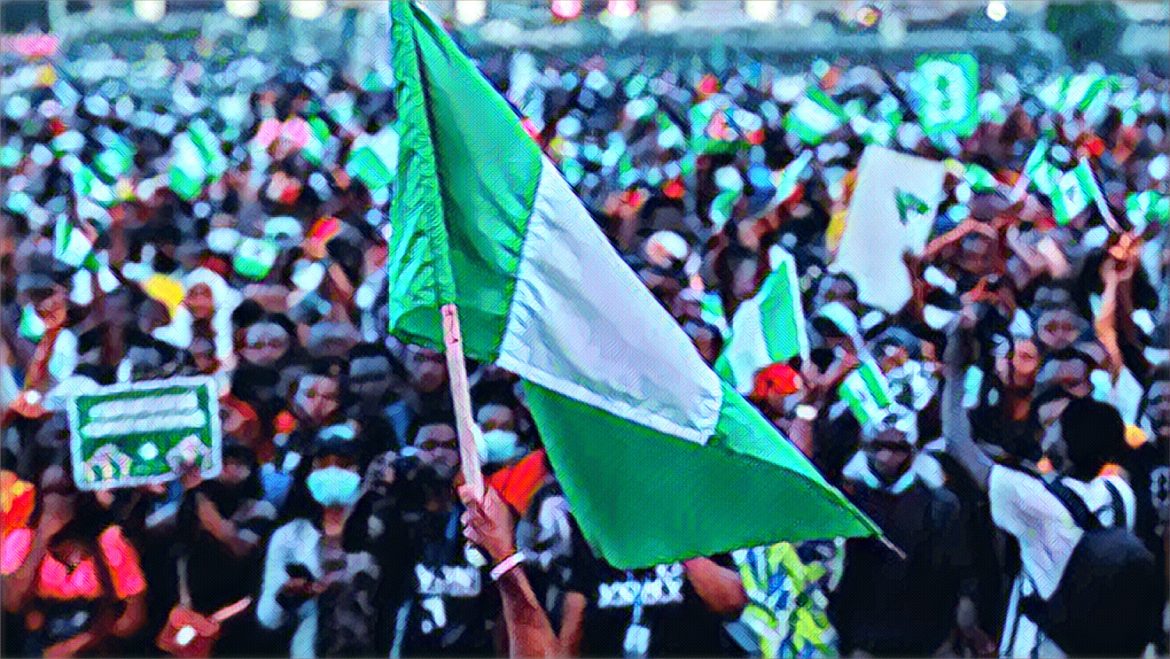Nigerians are fervently voicing their concerns and calling for prompt amendments to the nation’s constitution, aimed at curtailing presidential powers and ensuring the inauguration of National Assembly and State Houses of Assembly members precedes Presidential and Governorship elections.
Legal professionals, activists, and citizens conveyed to the media that the existing power structure unfairly tips for the President and state Governors.
In a detailed conversation with the Saturday Vanguard over the weekend, they illuminated how this disproportion of power has puppeteered lawmakers, undermining the intended checks and balances essential to a thriving democracy.
Advocates are pushing for a recalibration of democratic constructs and demanding a more robust separation of powers among the governmental branches. Moreover, calls for an electoral system revamp are becoming increasingly vocal.
Advocates Speak Out on Power Imbalance
Dr. Akpo Mudiaga-Odje, a Warri-based constitutional lawyer and activist, emphasized the crucial need for a constitutional adjustment. He stated, “Inaugurating national and state parliaments before conducting presidential and governorship elections is imperative. The leadership of the parliaments should be established through an open secret ballot, paralleling the procedures of the notable 1993 presidential elections.”
Former Trade Union Congress Chair Clarkson Otu underscored the pressing issue of too-powerful presidencies in Cross River State. Vanguard reported that he described the Nigerian presidential system as a peculiar deviation, noting its dictatorial resonances and attributing this imbalance to a military-designed constitution.
Otu advocates for constitutional amendments, particularly to curtail presidential authority over key governmental appointments and to establish complete financial and political autonomy for the legislature.
Diverse Perspectives on the Constitutional Crisis
Orchadson Umoh, Chair of Lawyers’ Action against Corruption in Cross River State, highlighted the dire situation of the Nigerian democracy, lamenting the entwinement of the legislative and executive branches.
Umoh pointed to a political class prioritizing self and family above national interests, navigating through a political landscape he describes as daunting but not impossible.
On the other hand, ex-federal lawmaker Hon. Peter Igbodor expressed a more resigned perspective, noting that legislators, a product of “our disjointed and laid-back communities,” should not shoulder all the blame. He accentuated that the executive arm’s control over the judiciary and legislature perpetuates a system where power dictates the narrative.
Similarly, the former chairman of the Nigeria Bar Association, Emmanuel Uti, spotlighted the legislature’s failure in oversight functions and self-serving lawmaking.
Furthermore, lawyer and politician Alhaji Mumakhai Unagha pressed for strict adherence to the principle of separation of powers, criticizing the prevailing “political rascality” and pushing for law amendments to shield legislative affairs from undue external influence.
Amid these varied perspectives, the common thread remains a call for urgent constitutional amendments and an upheaval of the current power structure to preserve and enhance Nigeria’s democratic health.


